
AlphaLISA Human PDL1 Detection Kit, 100 Assay Points
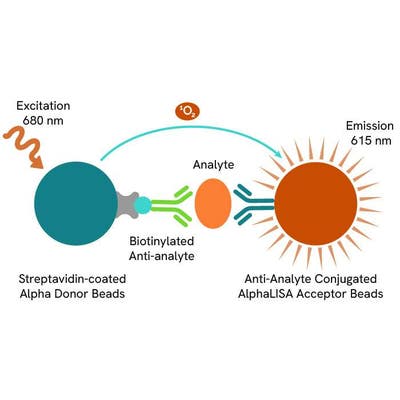

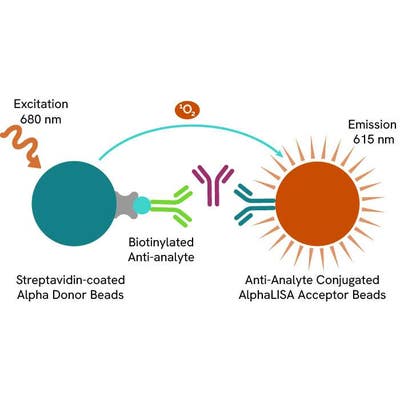 View All
View All
AlphaLISA Human PDL1 Detection Kit, 100 Assay Points
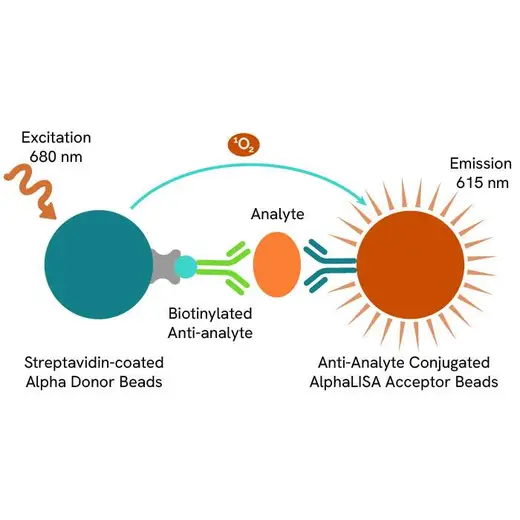

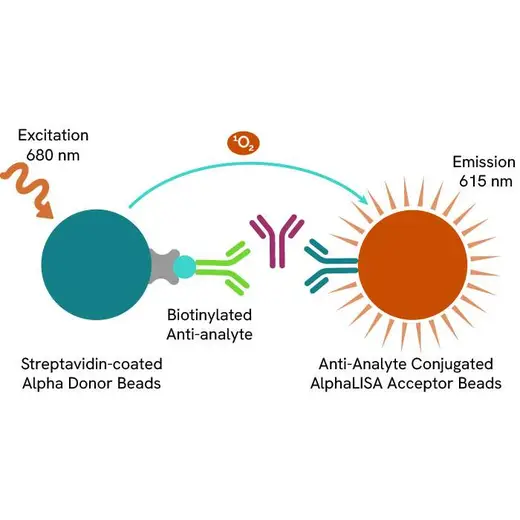




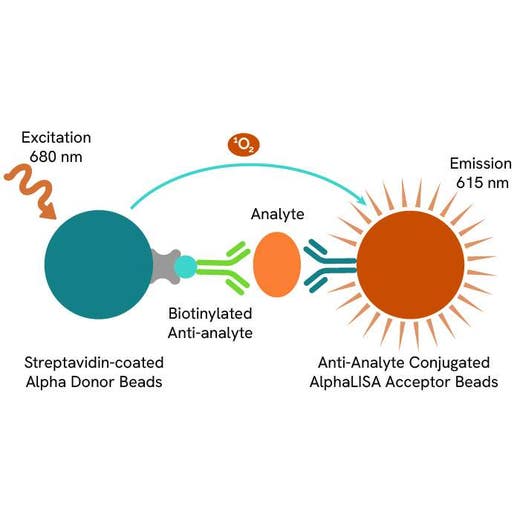

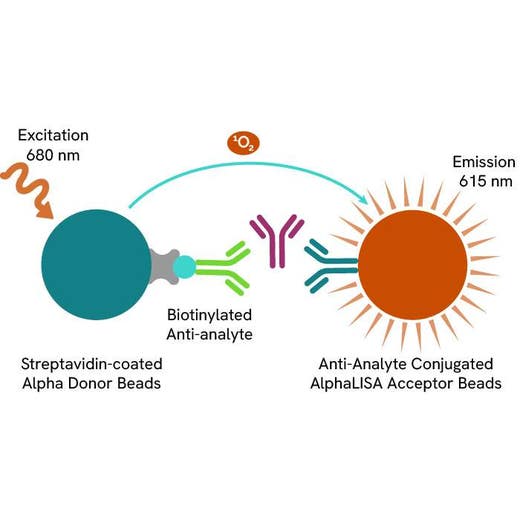




The AlphaLISA™ Human PD-L1 Detection Kit is designed for detection and quantitation of human Programmed death ligand 1 (PD-L1; CD274/B7-H1) in cell culture media or serum using a homogeneous (no-wash steps, no separation steps) assay.
| Feature | Specification |
|---|---|
| Application | Protein Quantification |
| Dynamic Range | 2 - 300,000 pg/mL |
| Limit of Detection | 2 pg/mL |
| Limit of Quantification | 10 pg/mL |
| Sample Volume | 10 µL |
The AlphaLISA™ Human PD-L1 Detection Kit is designed for detection and quantitation of human Programmed death ligand 1 (PD-L1; CD274/B7-H1) in cell culture media or serum using a homogeneous (no-wash steps, no separation steps) assay.







AlphaLISA Human PDL1 Detection Kit, 100 Assay Points







AlphaLISA Human PDL1 Detection Kit, 100 Assay Points







Product information
Overview
Formats:
- Our HV (100 assay point) kits allow you to run 100 wells in 96-well format, using a 100 µL reaction volume (10 µL of sample).
- Our 500 assay point kit allows you to run 500 wells in 96-well or 384-well format, using a 50 µL reaction volume (5 µL of sample).
- Our 5,000 assay point kit allows you to run 5,000 wells in 96-well or 384-well format, using a 50 µL reaction volume (5 µL of sample).
Features:
- No-wash steps, no separation steps
- ELISA alternative technology
- Sensitive detection
- Broad sample compatibility
- Small sample volume
- Results in less than 3 hours
- Half the time of an ELISA assay
Programmed death ligand 1 (PD-L1), also known as cluster of differentiation 274 (CD274) or B7 homolog1 (B7-H1) belongs to the growing B7 family of immune proteins and has been demonstrated to play a role in the regulation of immune responses and peripheral tolerance. Human PD-L1 is constitutively expressed in several organs such as heart, skeletal muscle, placenta and lung, and in lower amounts in thymus, spleen, kidney and liver. PD-L1, together with PD-L2, are two ligands for PD-1 (programmed death 1), a member of the CD28 family of immunoreceptors. By binding to PD-1 on activated T-cells and B-cells, PD-L1 may inhibit ongoing T-cell responses by inducing apoptosis and arresting cell-cycle progression. Accordingly, it leads to growth of immunogenic tumor growth by increasing apoptosis of antigen specific T cells and may contribute to immune evasion by cancers. PD-L1 thus is regarded as promising therapeutic target for human autoimmune disease and malignant cancers.
AlphaLISA technology allows the detection of molecules of interest in a no-wash, highly sensitive, quantitative assay. In an AlphaLISA assay, a biotinylated anti-analyte antibody binds to the Streptavidin-coated Donor beads while another anti-analyte antibody is conjugated to AlphaLISA Acceptor beads. In the presence of the analyte, the beads come into close proximity. The excitation of the Donor beads causes the release of singlet oxygen molecules that triggers a cascade of energy transfer in the Acceptor beads, resulting in a sharp peak of light emission at 615 nm.
Specifications
| Application |
Protein Quantification
|
|---|---|
| Automation Compatible |
Yes
|
| Brand |
AlphaLISA
|
| Detection Modality |
Alpha
|
| Dynamic Range |
2 - 300,000 pg/mL
|
| Limit of Detection |
2 pg/mL
|
| Limit of Quantification |
10 pg/mL
|
| Product Group |
Kit
|
| Sample Volume |
10 µL
|
| Shipping Conditions |
Shipped in Blue Ice
|
| Target |
PD-L1
|
| Target Class |
Biomarkers
|
| Target Species |
Human
|
| Technology |
Alpha
|
| Therapeutic Area |
Oncology
|
| Unit Size |
100 Assay Points
|
Image gallery






AlphaLISA Human PDL1 Detection Kit, 100 Assay Points






AlphaLISA Human PDL1 Detection Kit, 100 Assay Points






Video gallery

AlphaLISA Human PDL1 Detection Kit, 100 Assay Points

AlphaLISA Human PDL1 Detection Kit, 100 Assay Points

Resources
Are you looking for resources, click on the resource type to explore further.
Membrane proteins, which are key in cellular signaling and often serve as disease biomarkers, are a significant focus in research...
Breast cancer tumors can adapt to immune cell infiltration by responding to the increased concentration of interferon gamma (IFN-ɣ...
SDS, COAs, Manuals and more
Are you looking for technical documents related to the product? We have categorized them in dedicated sections below. Explore now.


How can we help you?
We are here to answer your questions.






























